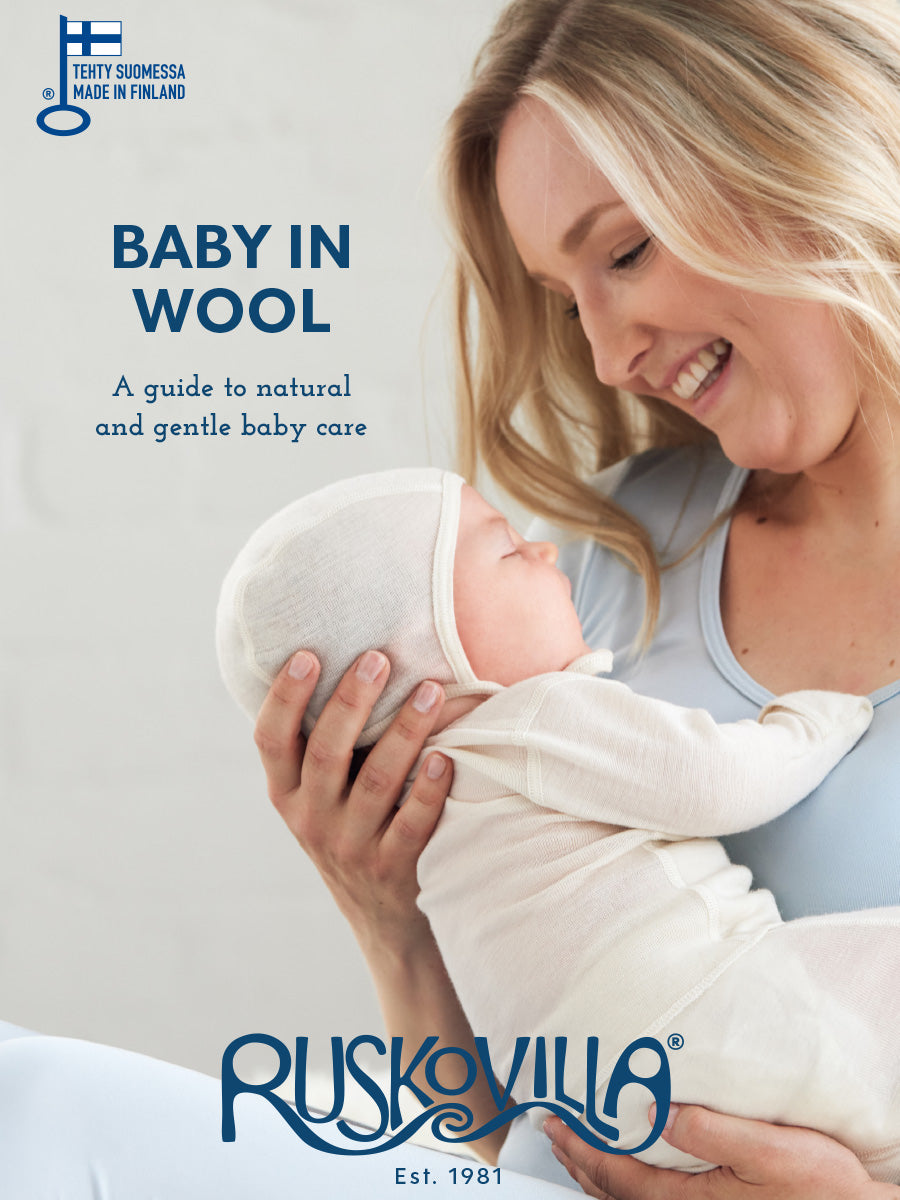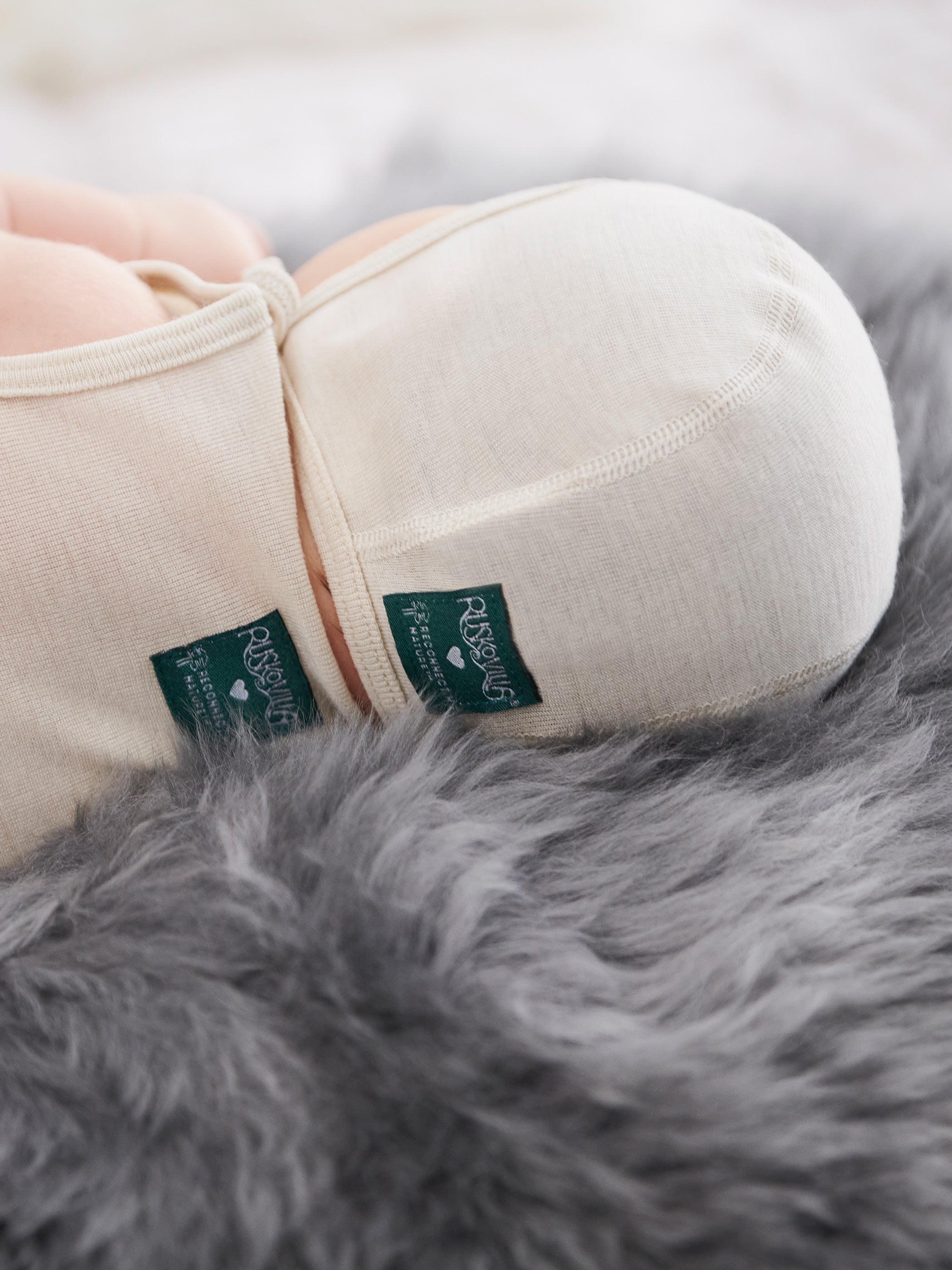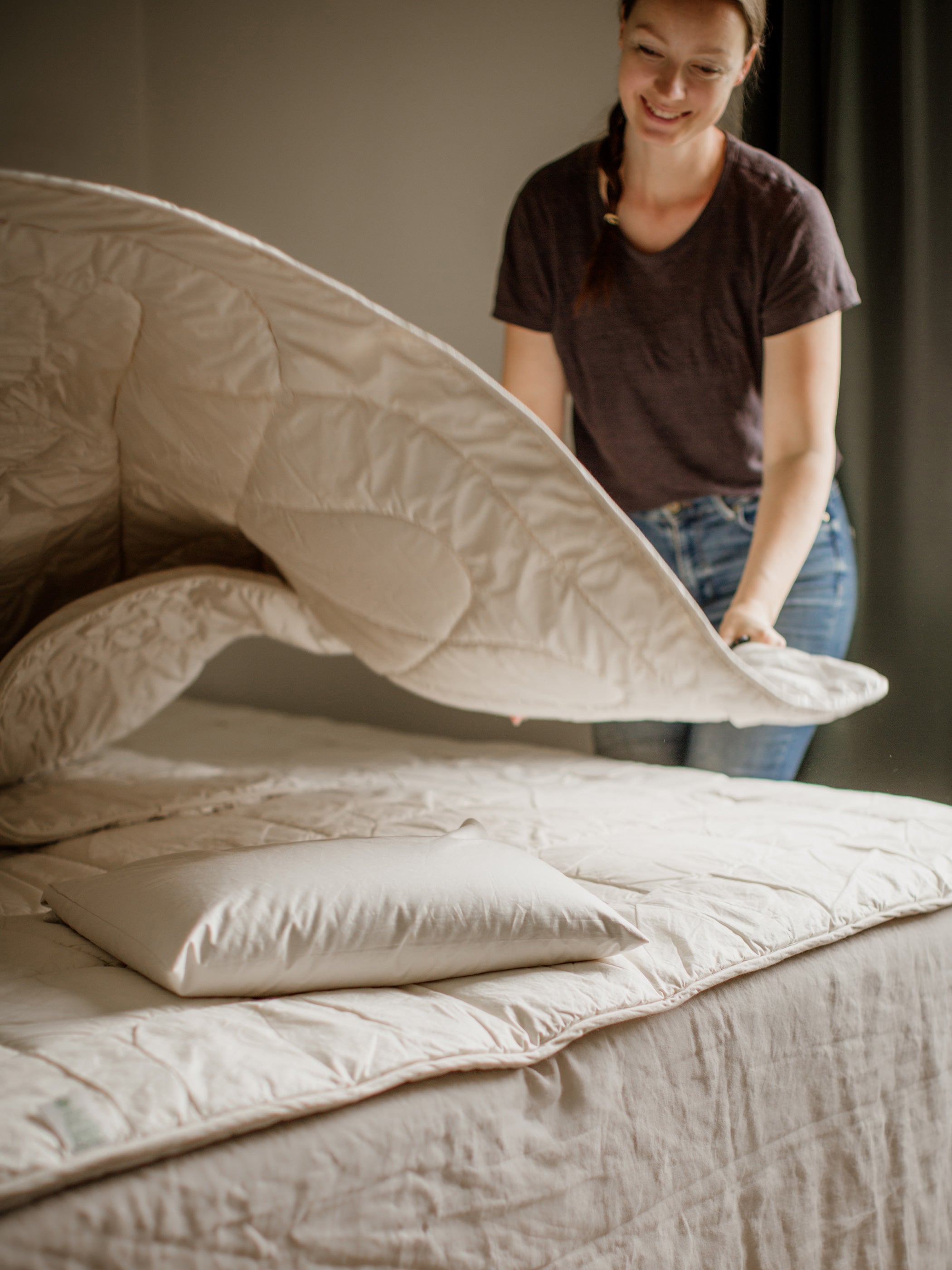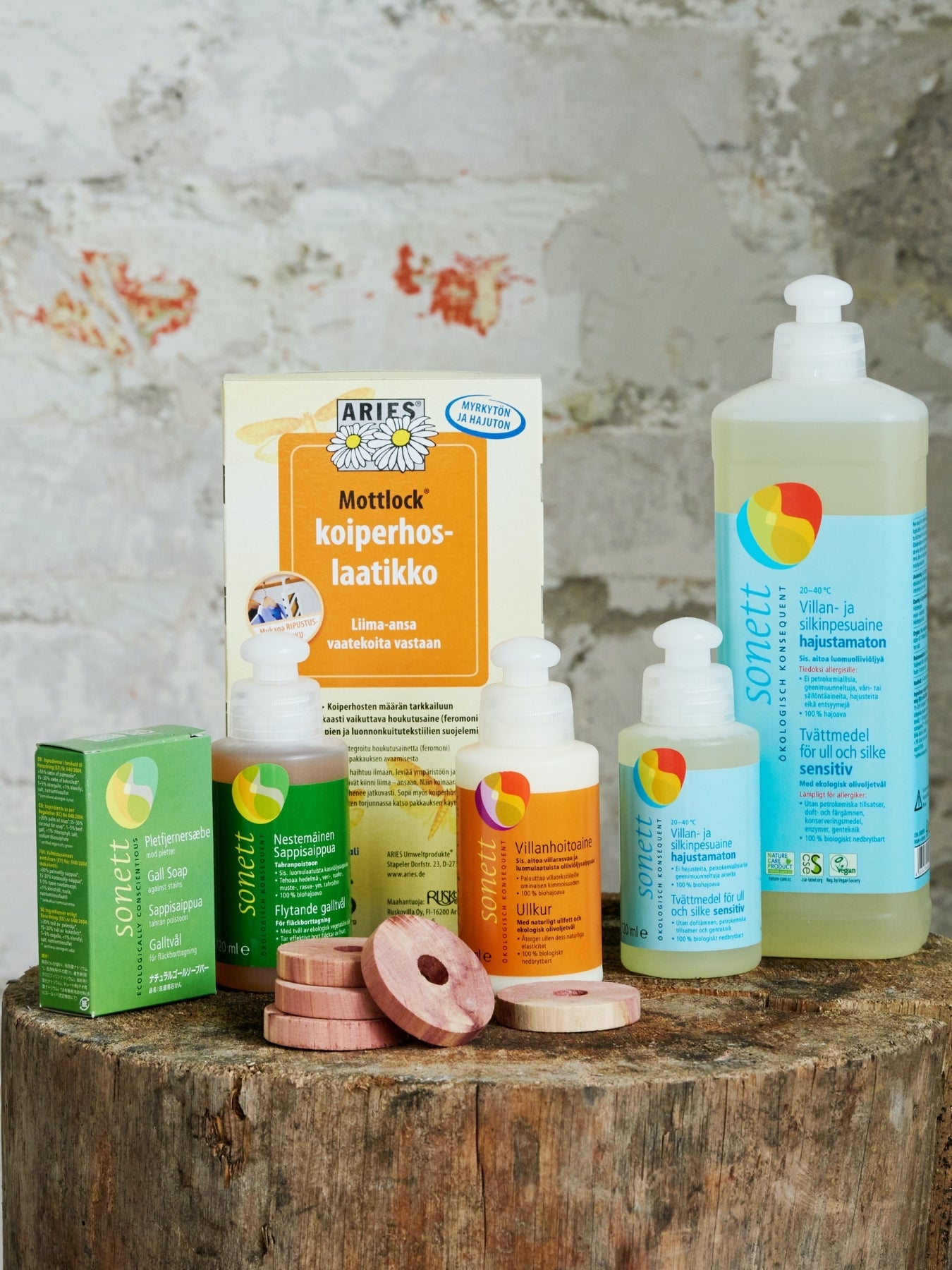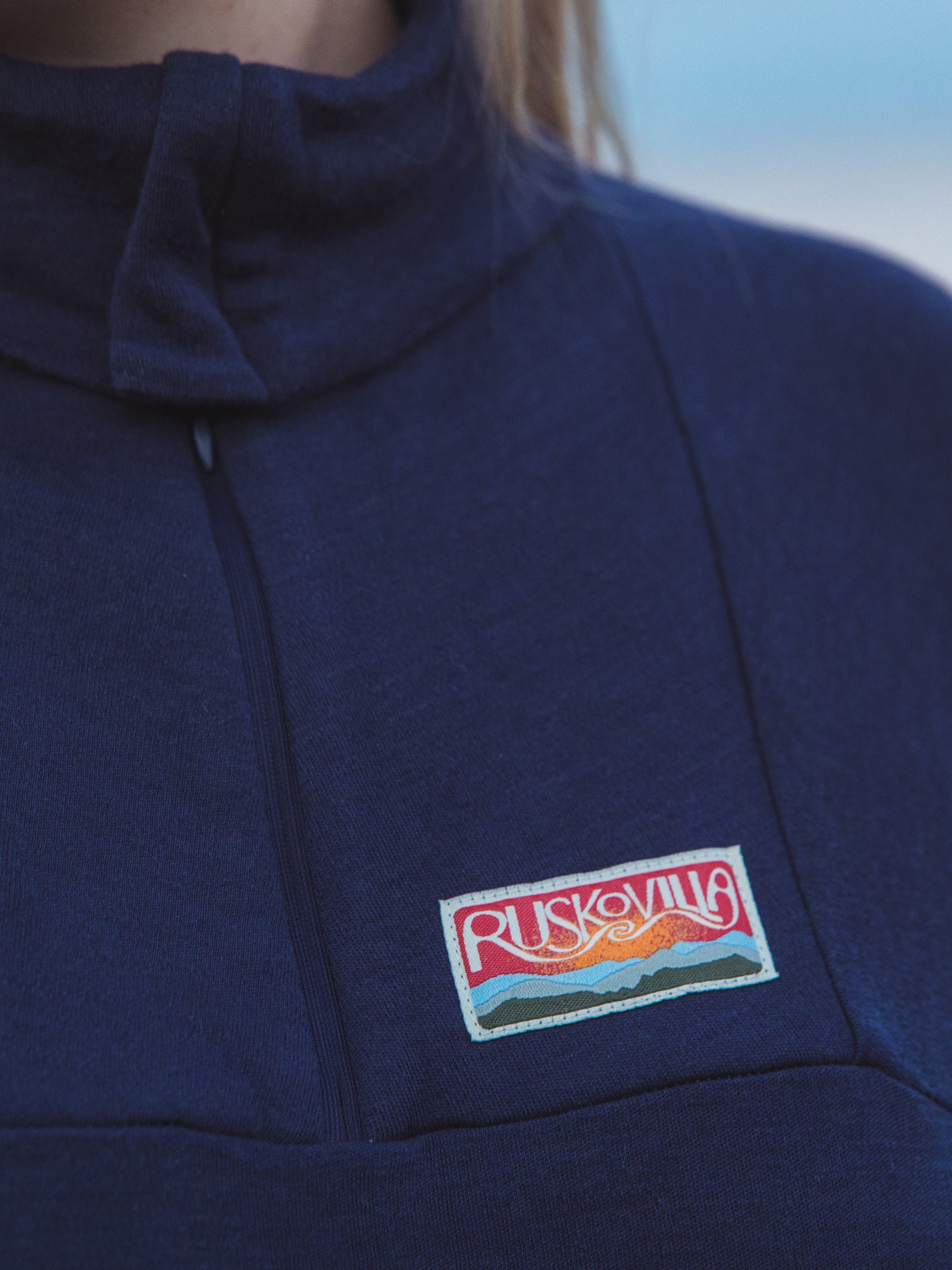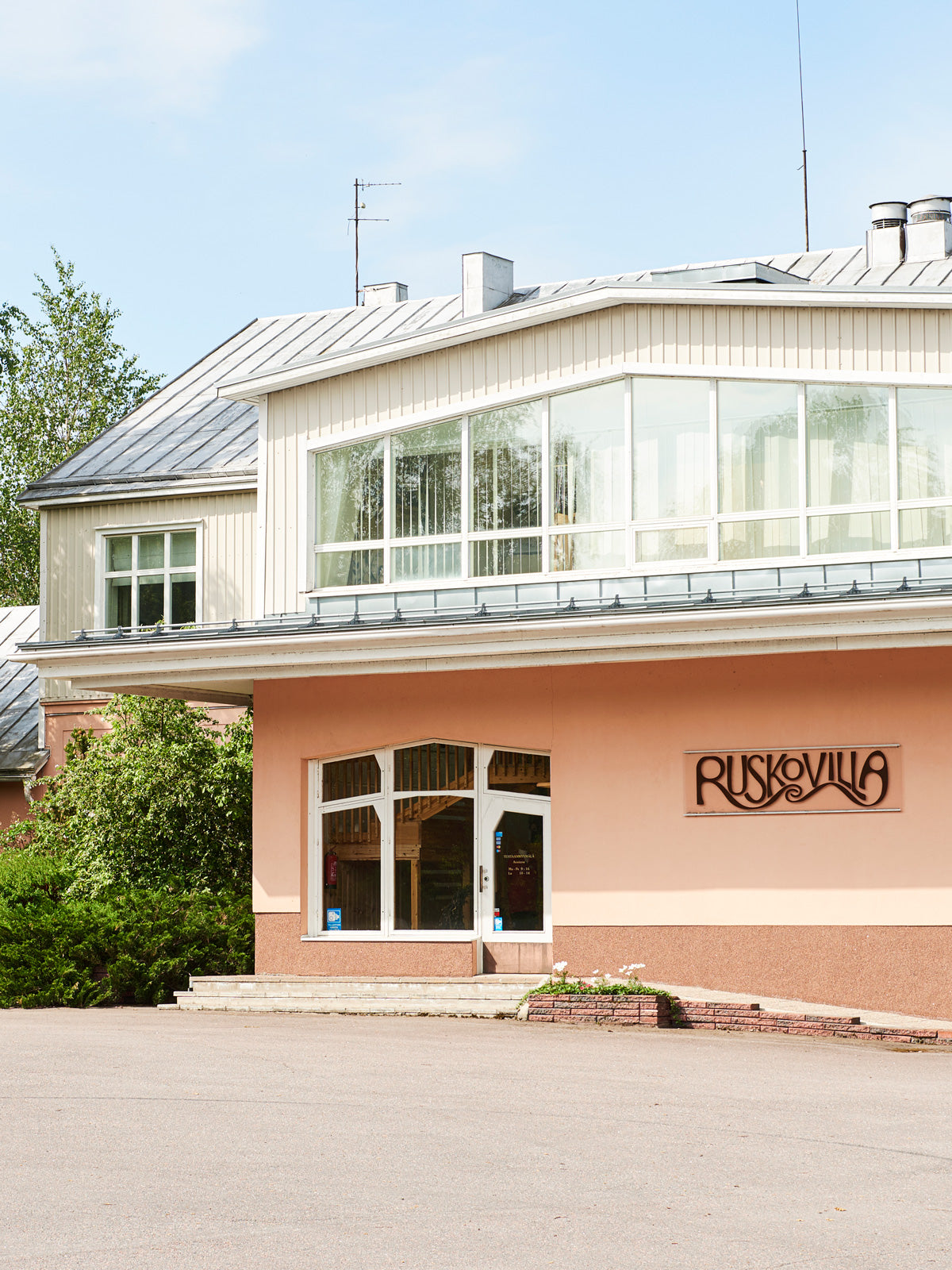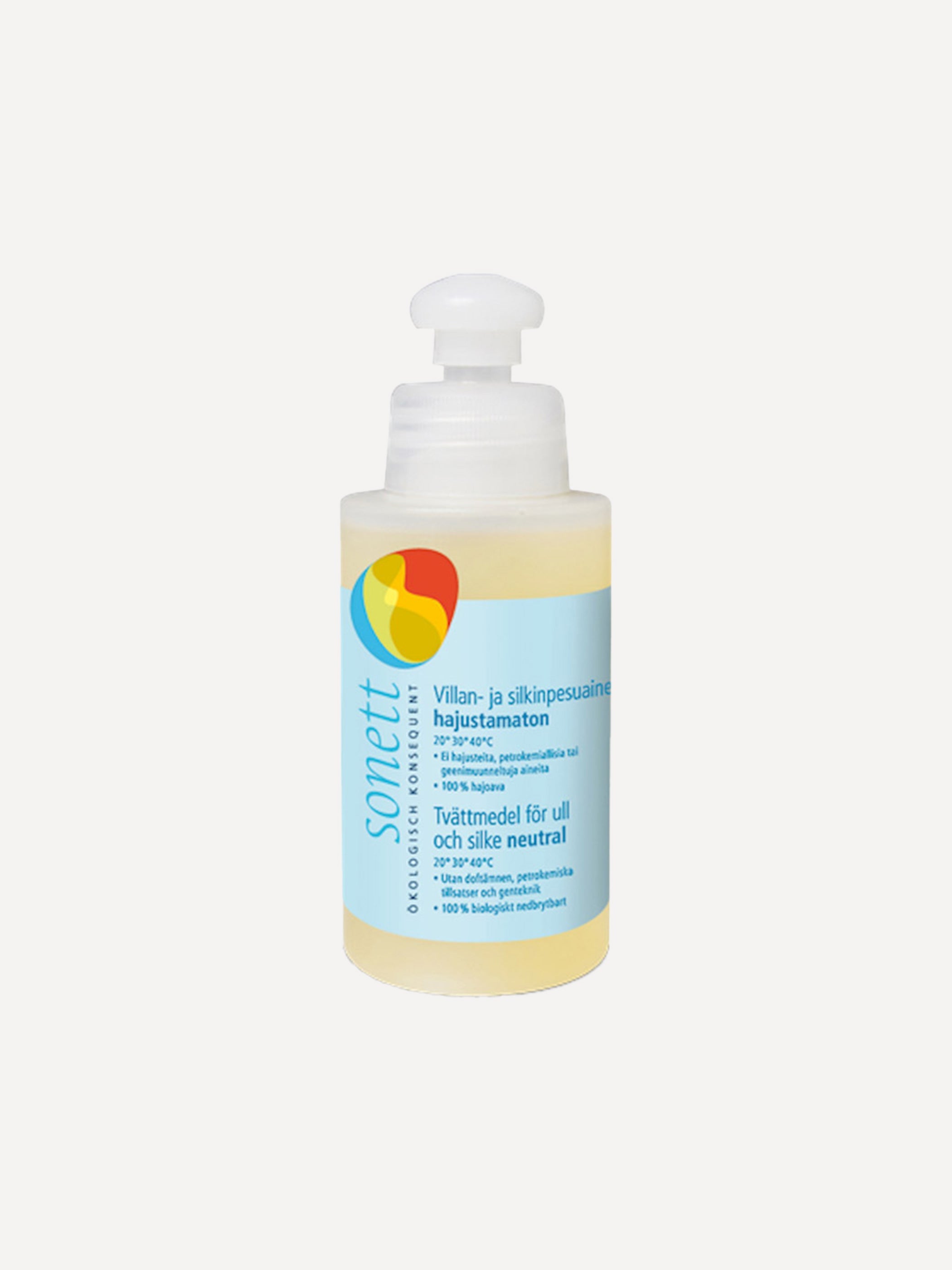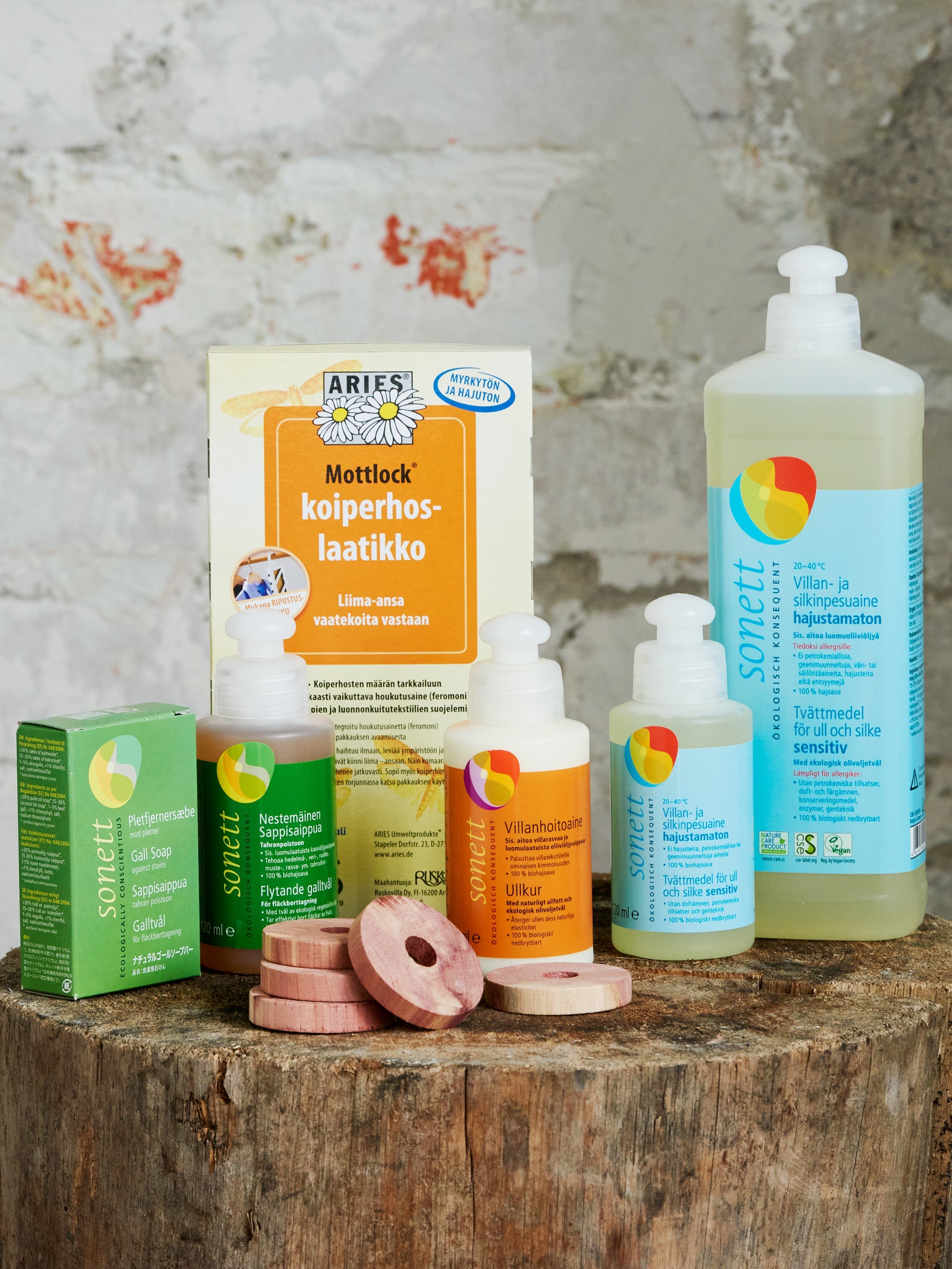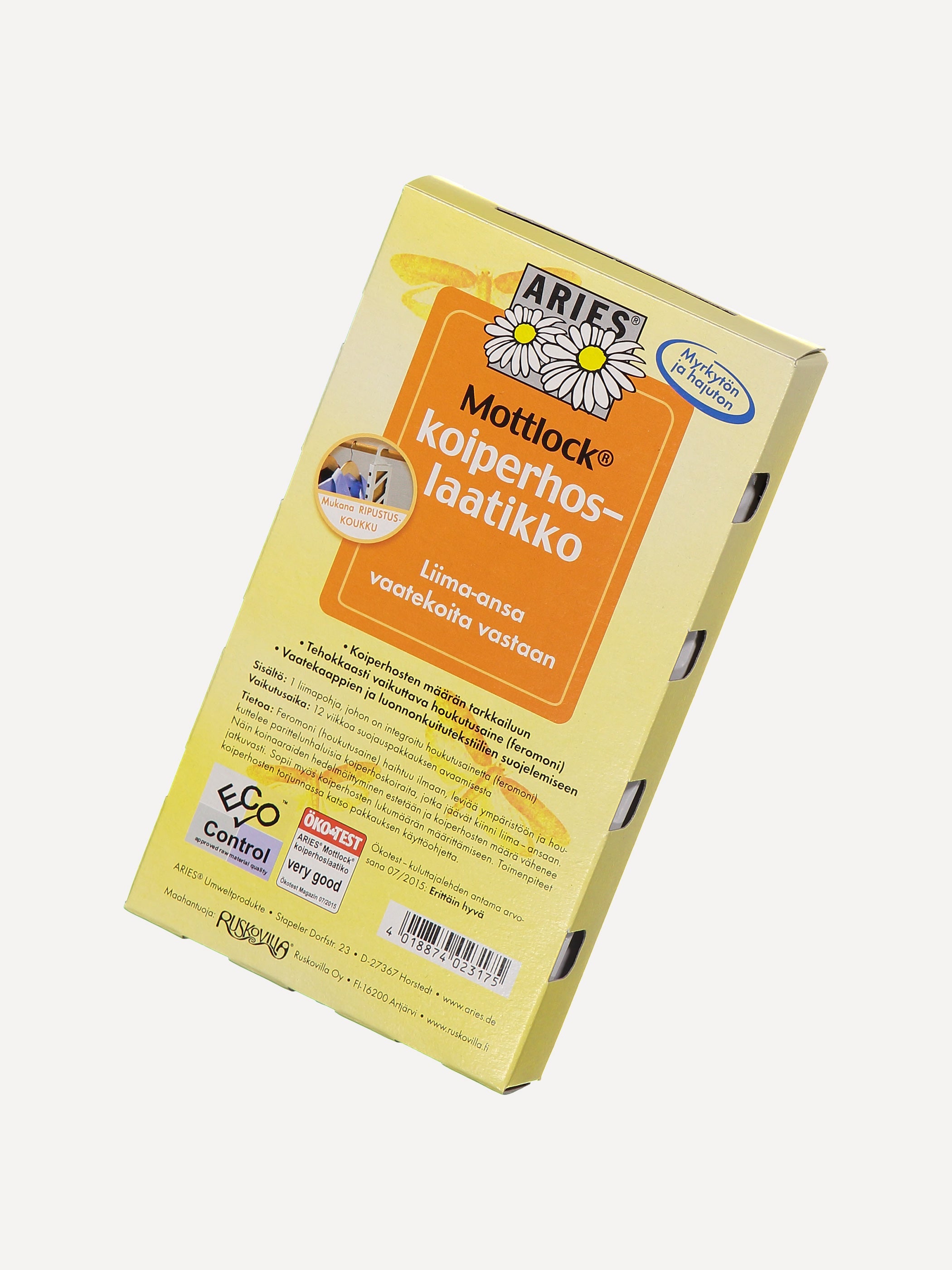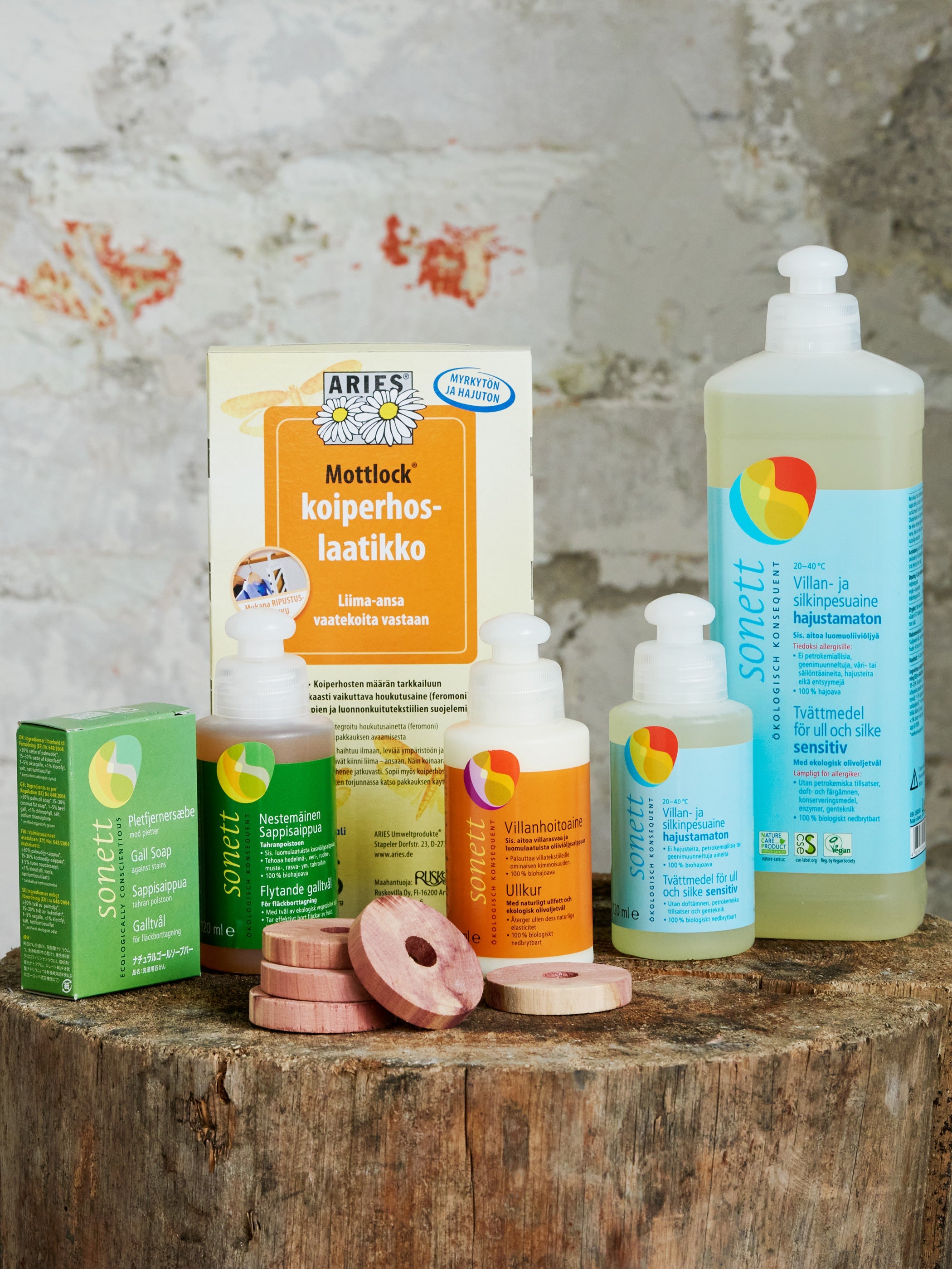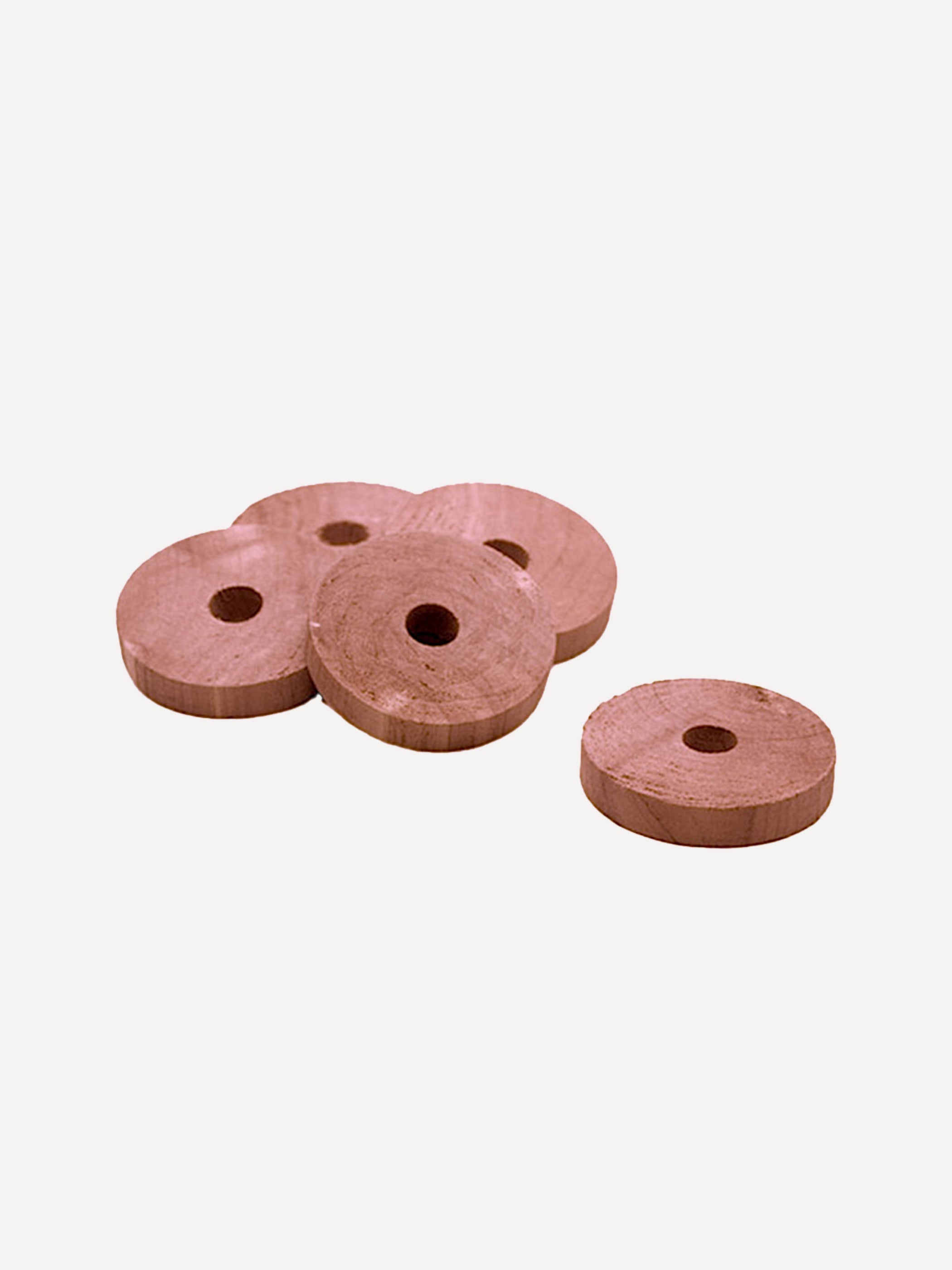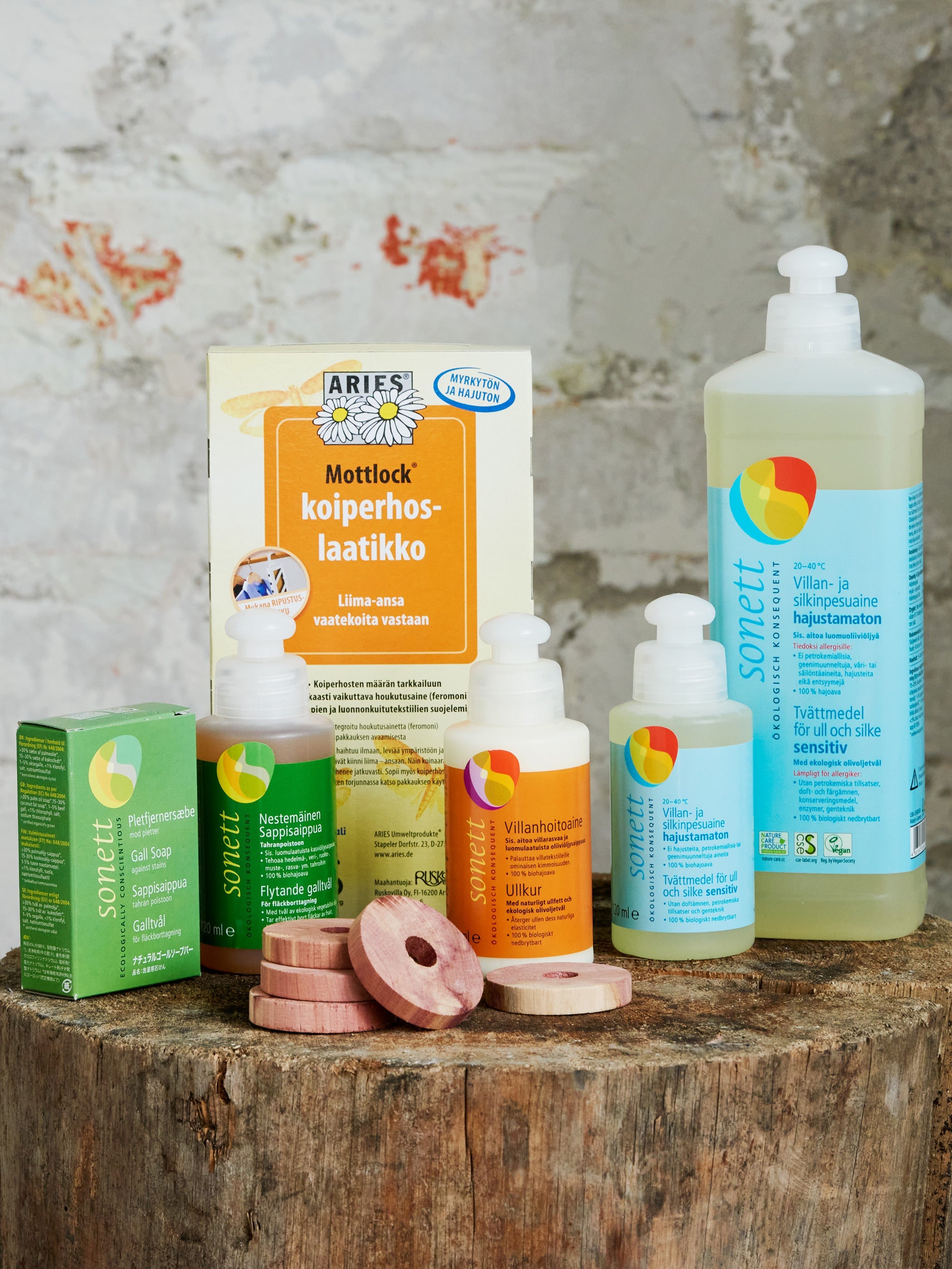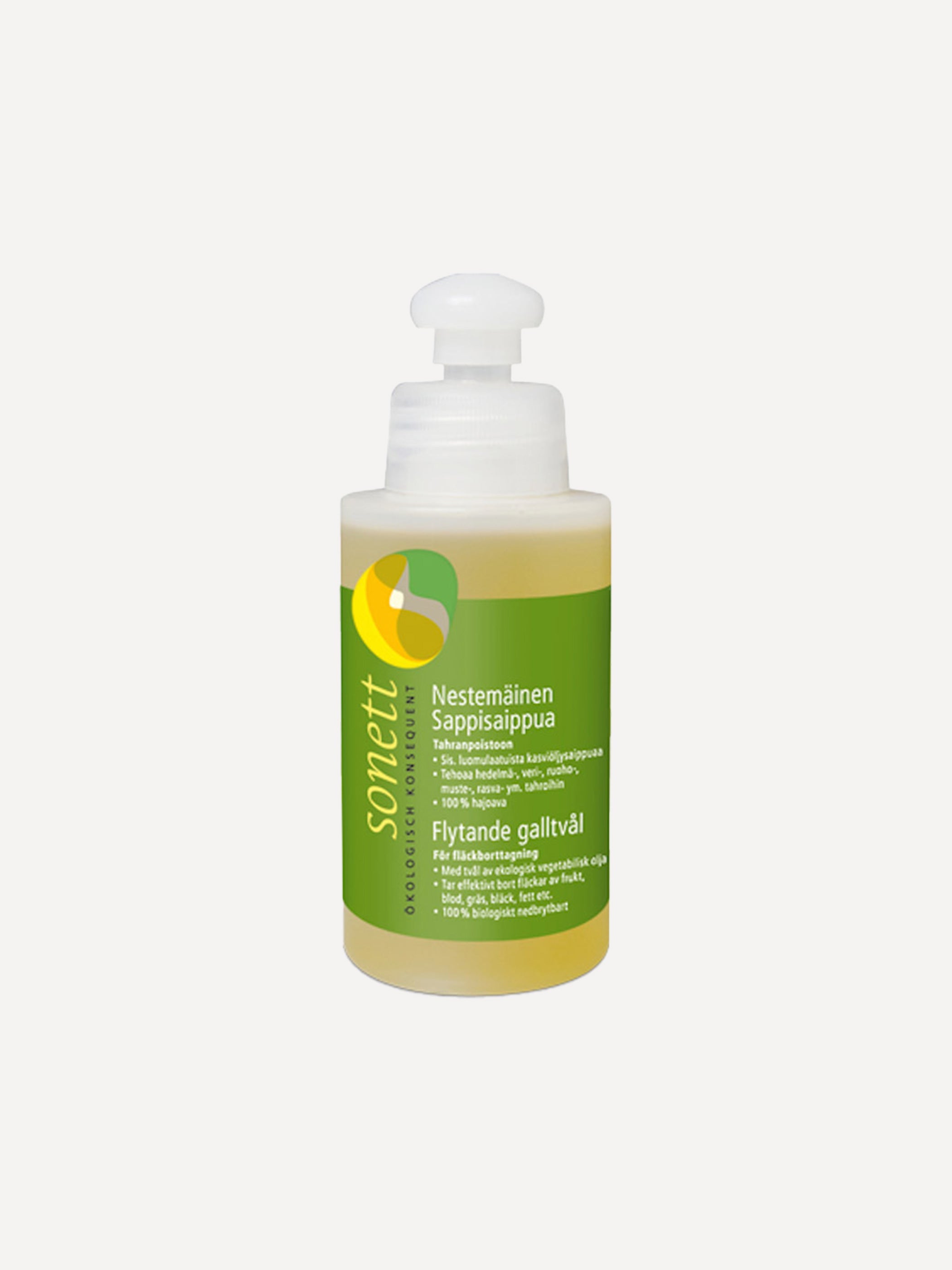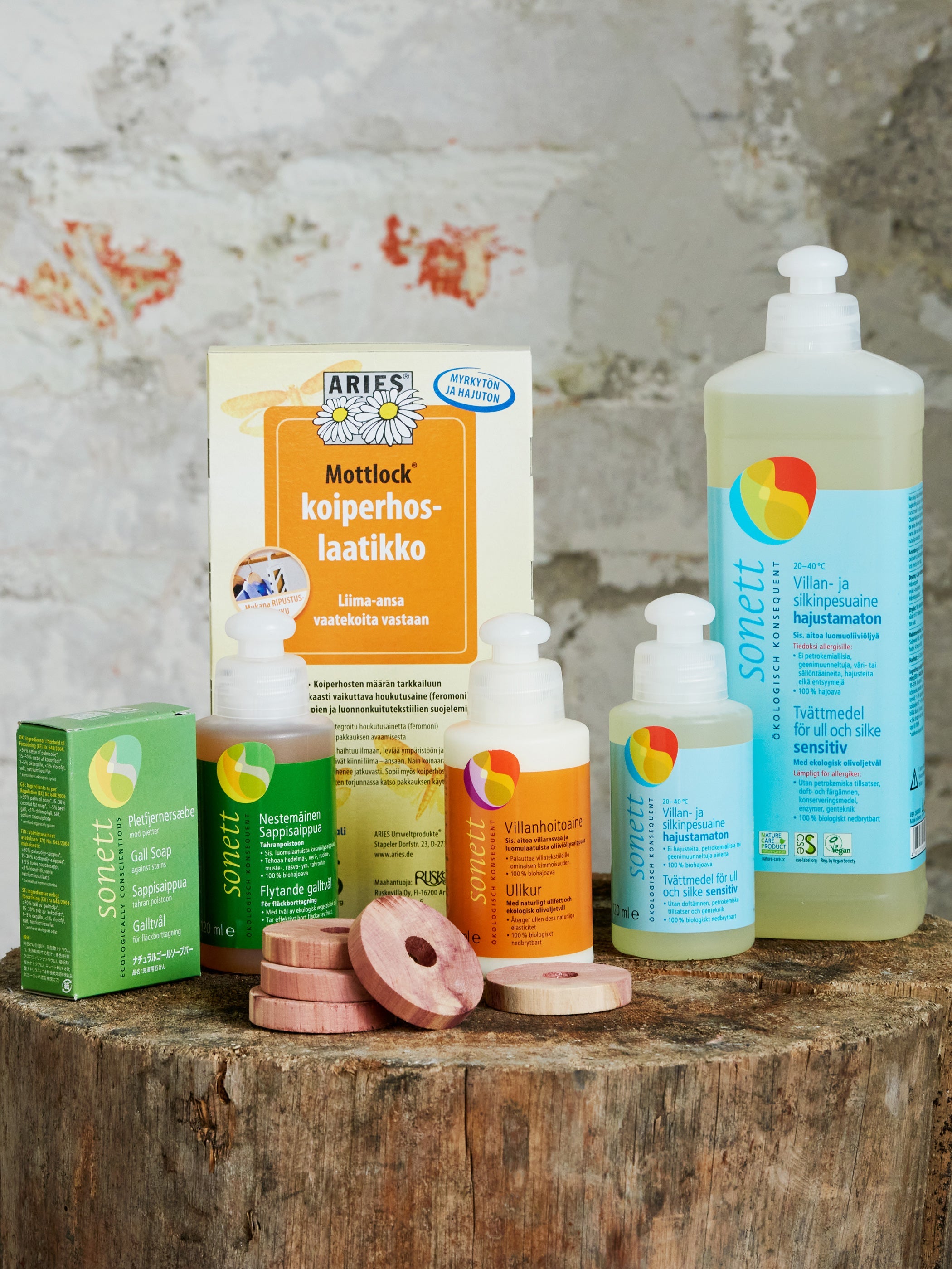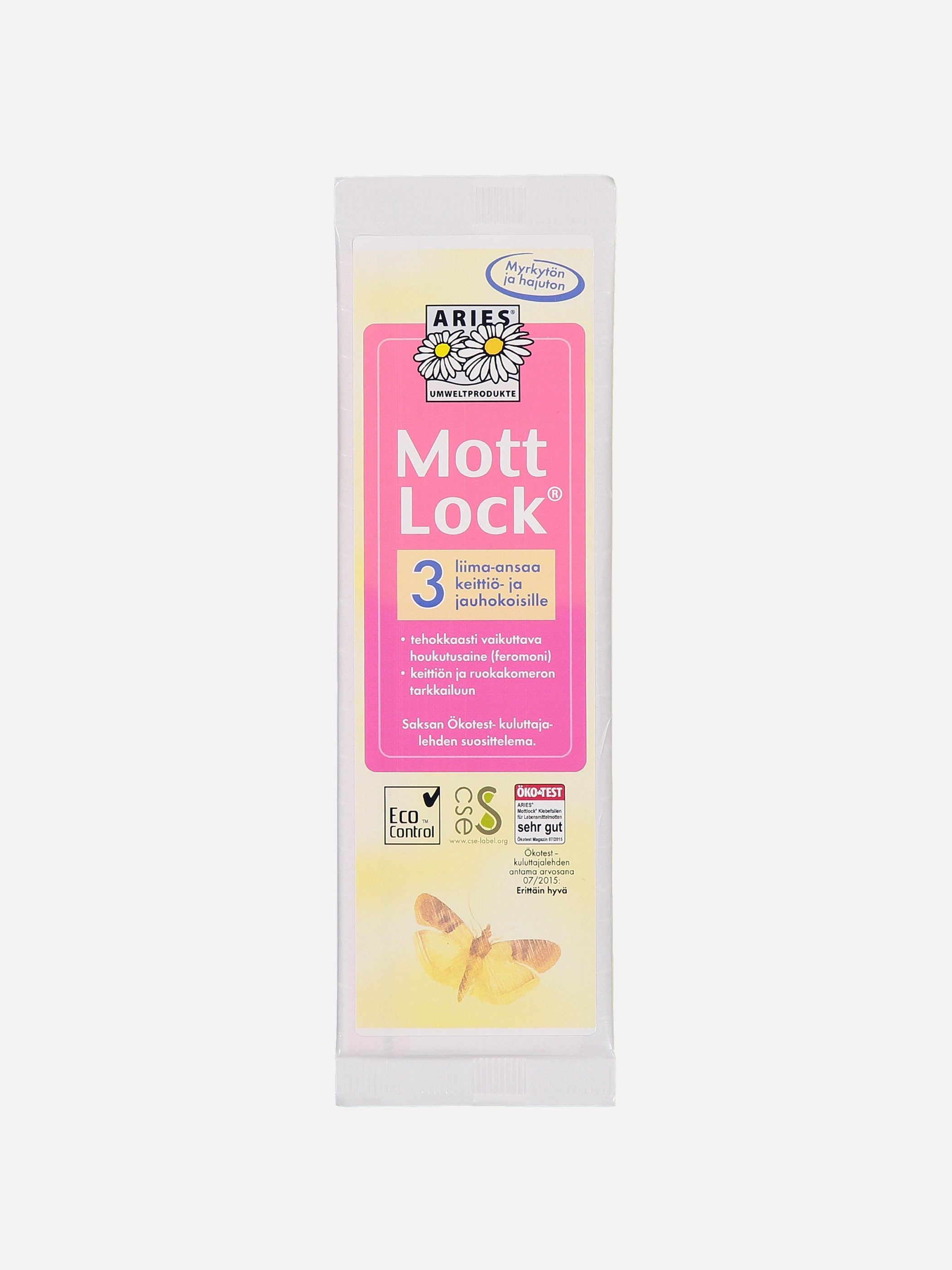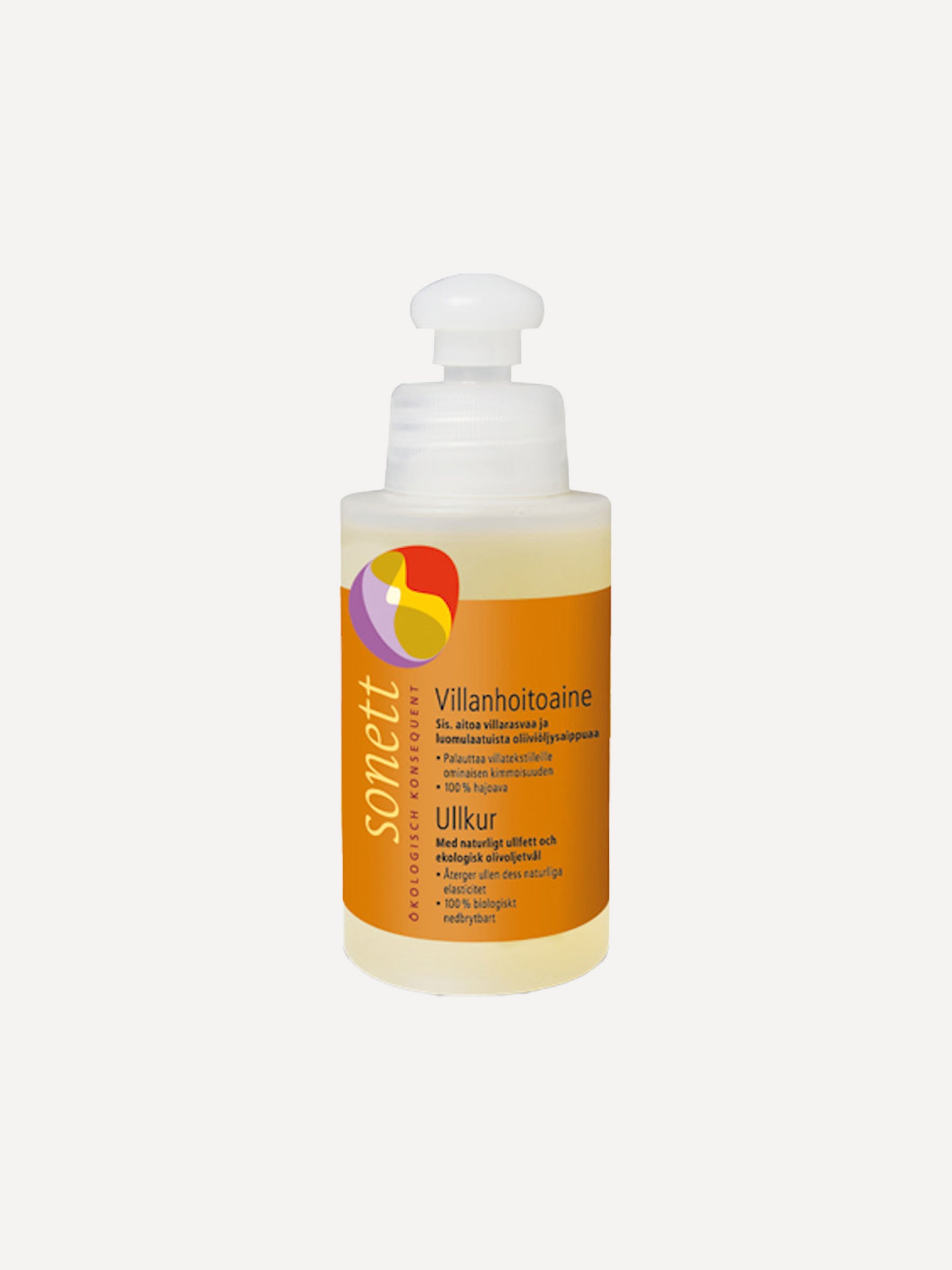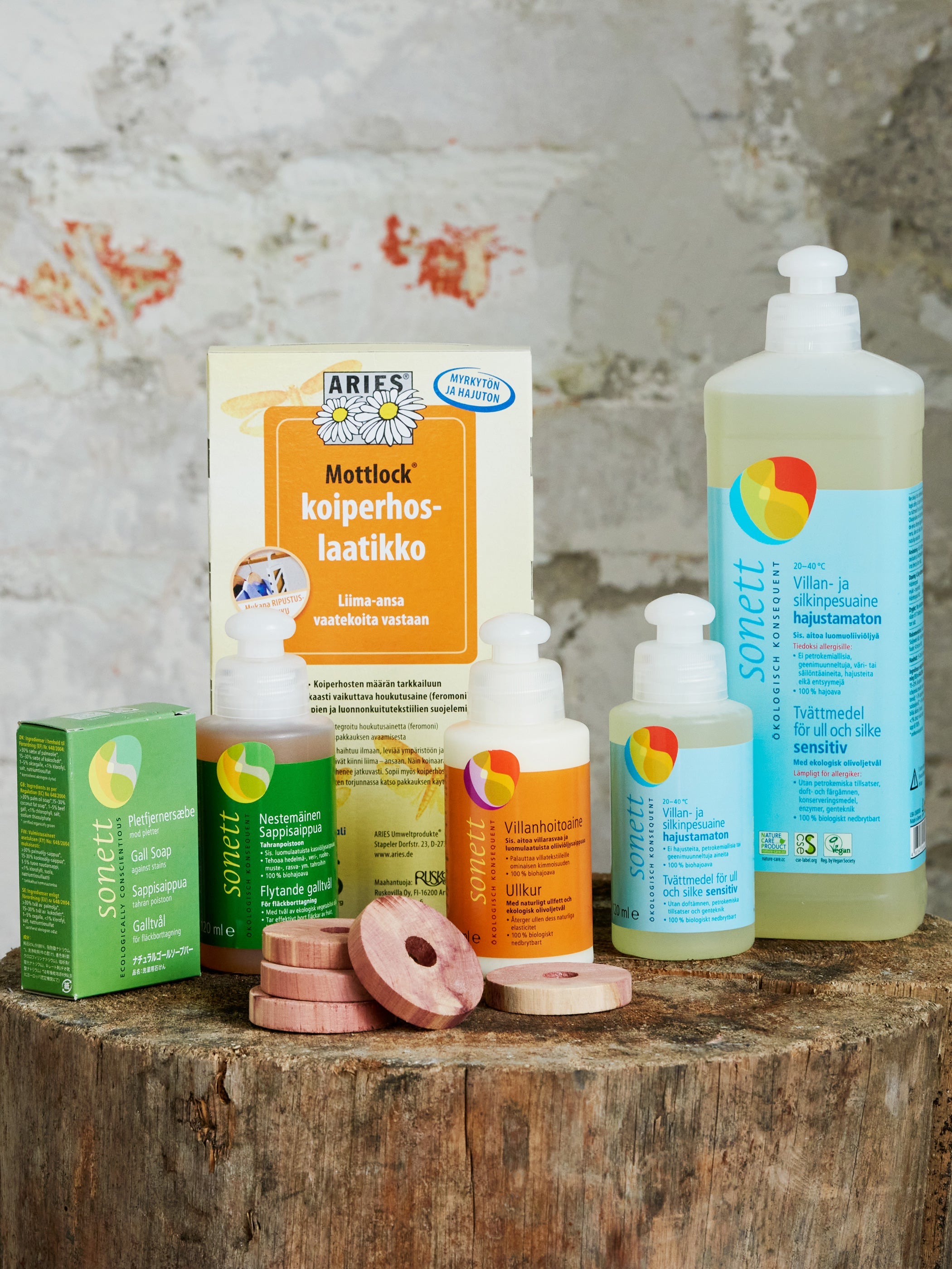Nature has gone to great lengths to provide us with our wonderful natural fibers. The way we produce our raw materials and the high quality of our products are important for their longevity and ecology, but the end-user also has a big responsibility: if washed and maintained correctly, our products can last for years.
We have gathered instructions for washing and maintenance for different natural fibers used in our products. In addition, the key information can be found in the labels in our clothes as well as in the sales packaging for most of our clothes.
Washing and care instructions
We have compiled comprehensive washing and care instructions for the natural fibers we use, and you can find them below. Detailed washing and care instructions can also be found on the product pages, on the product wash sheets and on the product packaging.

Airing prolongs wash intervals
Natural fibers, especially wool, have many self-cleaning properties. Therefore, simply airing out the product is usually enough to refresh it, allowing you to extend the intervals between washes.
After regular use, wool clothes should be washed, as washing helps the wool fibers recover and maintain their elasticity, thereby extending the useful life. For woollen garments that are used on a normal daily basis, a suitable washing interval could be approximately every couple of weeks. Clothes should also be washed before being stored for longer periods.
Loose dirt and hairs can be removed with a clothing or lint brush. Pills on wool garments can be removed with a manual wool comb, but care should be taken when using battery-operated pill removers.
We recommend using Sonett laundry liquid for wool and silk for washing and Sonett gall soap for stain removal. Our wool and silk garments can be washed by hand or in a washing machine at 30°C with a hand or wool wash cycle. After washing, the garment is shaped when wet and
left to dry on a horizontal surface
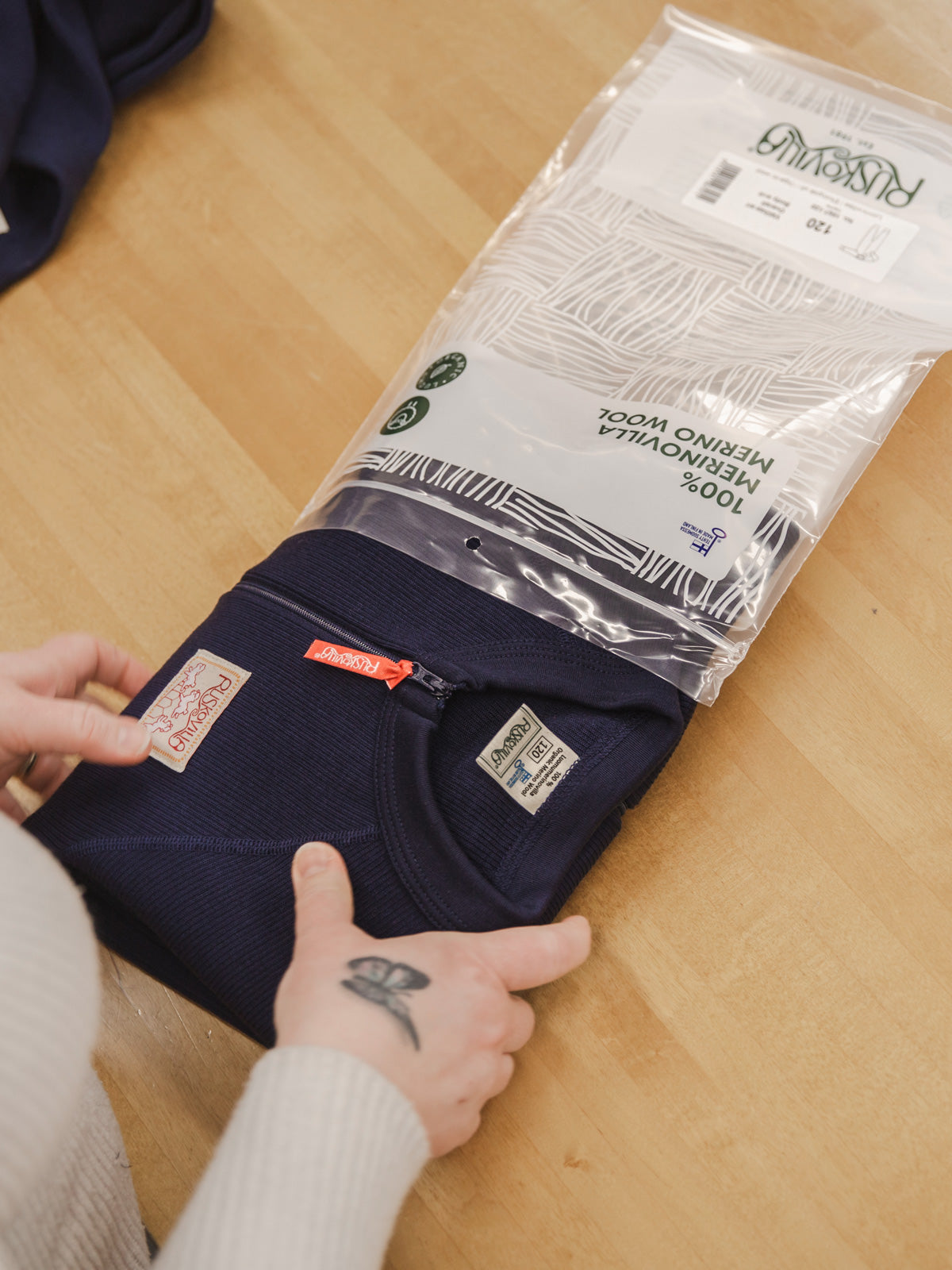
Non-toxic protection against pests
Moths and other pests are also a nuisance also in modern homes. The problem is that their presence can hardly be noticed until the first hole has appeared in your clothes.
Most merino wool products on sale have undergone chemical mothproofing treatments, which are harmful to both the environment and human health, as these chemicals can be absorbed through the skin and respiratory tract. Because organic standards prohibit the use of mothproofing agents, none of Ruskovilla's products are treated with them.
Fortunately, there are safer ways to keep pests at bay. The most effective way to protect valuable textiles is to store them in tightly sealed plastic bags, such as the original packaging, when not in daily use or for long-term storage. Red cedar rings and moth traps provide natural and safe protection for natural fibers.
Read our tips for protecting garments from pests


